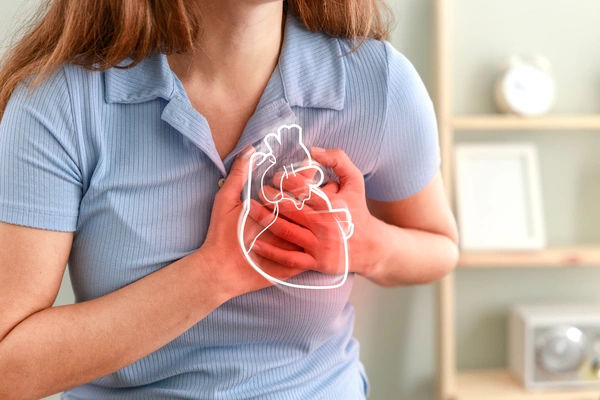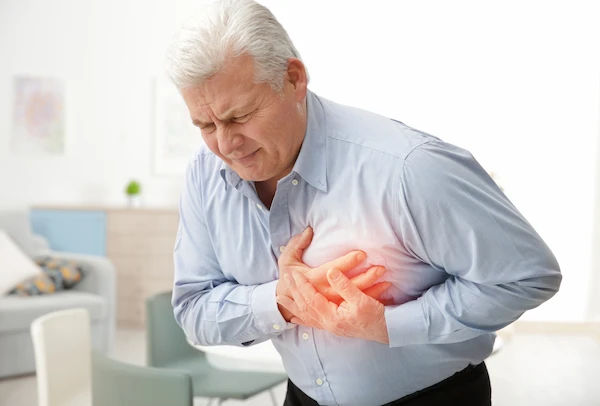- Male
- 30 Years
- 22/01/2025
I've been noticing that my heart starts beating really fast sometimes, especially when I'm going up the stairs, and it makes me feel pretty anxious. Could you suggest some tests to figure out what's going on?
Answered by 1 Apollo Doctors
It sounds like you may be experiencing symptoms of a heart condition. I recommend you get the following tests done to evaluate your heart health: 1. Electrocardiogram (ECG) to check the electrical activity of your heart. 2. Echocardiogram to assess the structure and function of your heart. 3. Stress test to evaluate how your heart responds to physical activity. 4. Holter monitor to record your heart's activity over a period of time. 5. Blood tests to check for any abnormalities in your heart enzymes or hormones. These tests will help determine the cause of your symptoms and guide further treatment.
Dr. Anshul Suggests...
Consult a Cardiologist
Answered 04/07/2025
0
0

More Cardiology Health Queries
View allI'm having this chest pain on the left side about 30 to 40 minutes after falling asleep, and it even comes with a bit of sweating. Once it starts, I can't find a comfortable position to sleep in without it hurting, so I've been sleeping in an easy chair for the past five days. I started taking Tonact TG for my high cholesterol, which is 290. I'm also on Thyronorm 75 and Telmisartan 40. My TSH levels and blood pressure are normal. Should I be worried about this chest pain and what should I do about it?
It sounds like you're experiencing discomfort that could be related to a few different factors, including your cholesterol and medications. Since the pain is persistent and affects your sleep, it's important to follow up with your doctor to rule out any heart-related issues and ensure the medications are working well for you. If the pain persists, consider an evaluation for possible musculoskeletal causes or other conditions that might be contributing.
Answered by 1 Apollo Doctors
Hey, I'm currently taking Tazloc 40mg because my blood pressure is around 100152. I'm 38 years old, weigh 100 kg, and I'm 5'10". I'm wondering if I'll need to stay on this medication for the rest of my life. Could you give me some advice?
It is important to continue taking it as prescribed by your doctor to effectively manage your blood pressure. Lifestyle modifications such as maintaining a healthy weight, regular exercise, and a balanced diet can also help in managing high blood pressure. Regular monitoring and follow-up with your healthcare provider are essential to determine the long-term need for medication.
Answered by 1 Apollo Doctors
I'm really concerned about heart attacks and wanted to get some clarity on it. Could you explain how a heart attack actually happens and what steps one can take to recover from it or prevent it from happening in the first place? I'm just trying to understand more for peace of mind.
Herat attack is something where blood supply to heart muscles is compromised due to fat that blocks the blood supply,which makes heart to give up and leads to heart attack,to prevent this healthy life style with balanced diet and regular check ups would help
Answered by 1 Apollo Doctors
Disclaimer: Answers on Apollo 247 are not intended to replace your doctor advice. Always seek help of a professional doctor in case of an medical emergency or ailment.

.webp)



